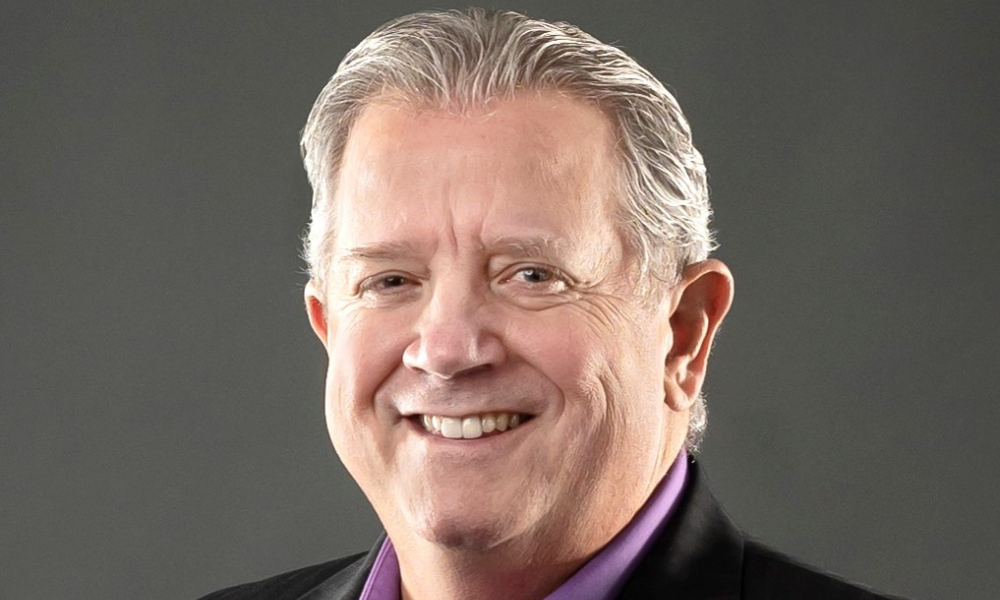
Limited scope retainers, legislative reform and collaborative law keys to family law reform: Harvie

Robert Harvie wants to change the justice system. After nearly 40 years of practicing law, he’s still trying to make legal services more affordable to Canadians. Harvie received the 2024 Service to the Profession award for the CBA Alberta/Law Society of Alberta Distinguished Service Awards. He is a former bencher from the Law Society of Alberta and former chair of the national CBA National Self-Represented Litigants Project.
“I have a frustration in the law, in how things remain traditional and stale,” he says. “We need to think about things about a macro level and think about how can we do it differently?”
While Harvie’s friends went to school in Alberta or Saskatchewan, he went to the University of British Columbia Allard School of Law, graduating in 1985 before returning to his hometown of Lethbridge to practise family law.
“My mother was a court administrator,” says Harvie, former partner and associate counsel at Harvie denBok Pollock Law Office. “I considered becoming a teacher, but the law was interesting to me.”
The 1980s economic recession in Alberta meant Harvie couldn’t pursue a corporate and commercial law career. Since he was interested in litigation, he focused on family law.
Harvie has been working on family justice reform for most of his career. He served as chair of the advisory board for the National Self Represented Litigants Project and was a board member for the Canadian Research Institute for Law and the Family. He also participated in the Reforming Family Justice working group, where legal stakeholders across Alberta looked at ways to change family law.
“I’m frustrated by the lack of imagination,” says Harvie. “I remember when we were doing a session, and the facilitator asked us to reimagine the justice system using Legos. Seventy percent of the groups created a triage system. I’m not saying triage systems aren’t a good idea, but we need to look at more systemic change.”
Cost is a significant access to justice issue. In 2015, Harvie partnered with John Paul Boyd, former Canadian Research Institute for Law and Family executive director at the University of Calgary, to create the Alberta Limited Legal Services project. Consumers can find lawyers who provide limited-scope retainers in this online service.
“Litigation moves at a glacial pace, and it’s expensive,” says Harvie. “You have a growing group of people who feel marginalized by the justice system. I wanted people to have access to legal services in a meaningful way.”
Access to justice was a significant focus for Harvie when he became a bencher for the Law Society of Alberta in 2012. During his six-year tenure as a board member, he was chair of the Access to Justice Committee and the Family Law Advisory Committee. In 2018, he appeared at the House of Commons’ Standing Committee on Justice and Human Rights to submit proposed changes to the Divorce Act.
“Simple trials that used to take one to two days can now take three to five days or even two weeks,” says Harvie. “I don’t think the justice is better because it’s longer. We need shorter timelines.”
Harvie focused on collaborative law early in his career to help people resolve their family disputes. He became one of the first prominent lawyers in Alberta to embrace collaborative law and became a board member of Collaborate Divorce Alberta Association in 2002. He went on to become the association’s president in 2010. He’s also been a board member since 2001 for the Lethbridge Collaborate Divorce Professionals, a local organization promoting collaborative law.
“When we look at the law, we should ask ourselves, are they making it quicker and easier for people?” says Harvie. “That should be our goalpost.”
Through the struggles and triumphs in pushing for change, Harvie remains committed to legal practice.
“Lawyers play an important role in democracy and society,” says Harvie. “I’m proud of being a lawyer.”